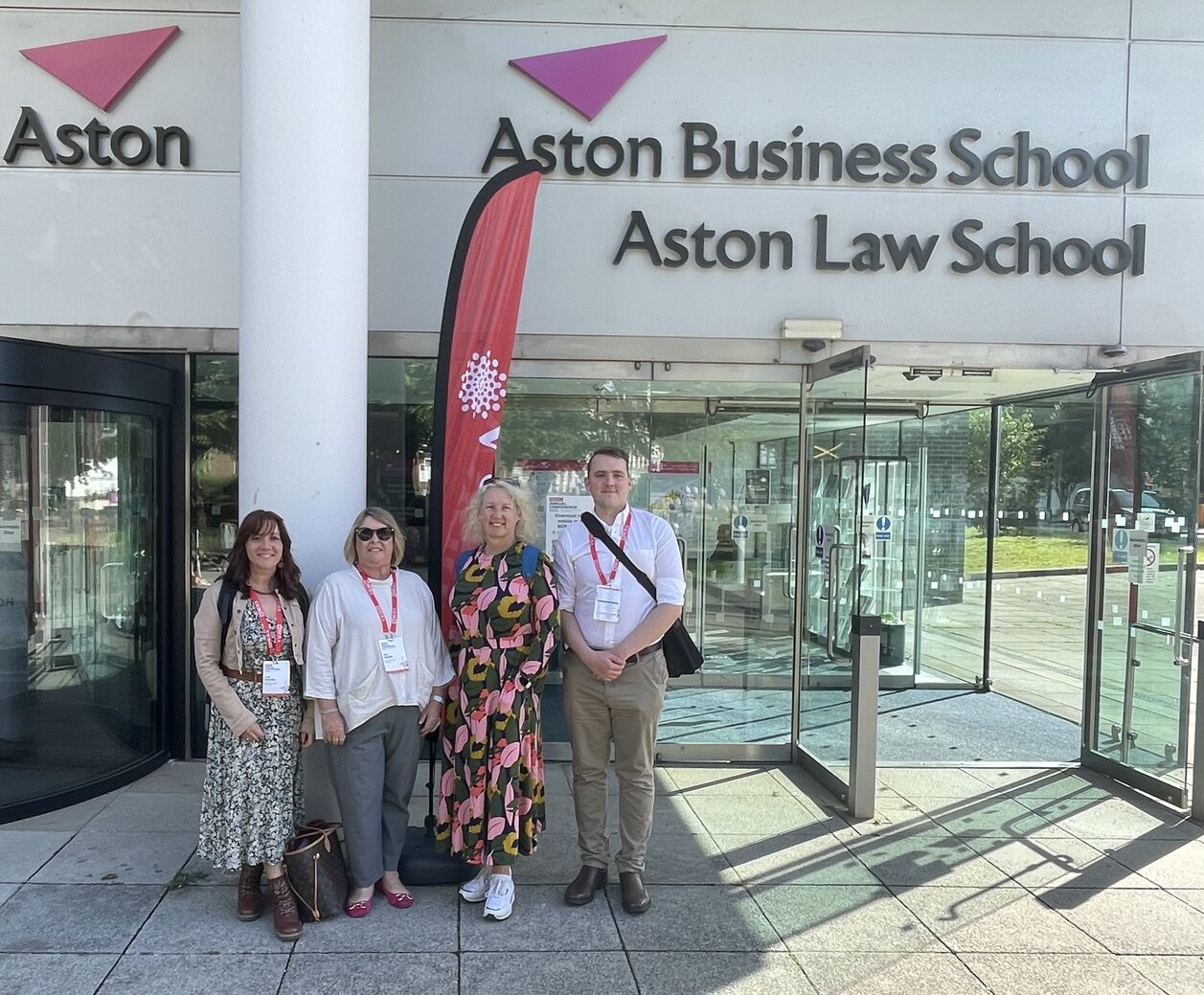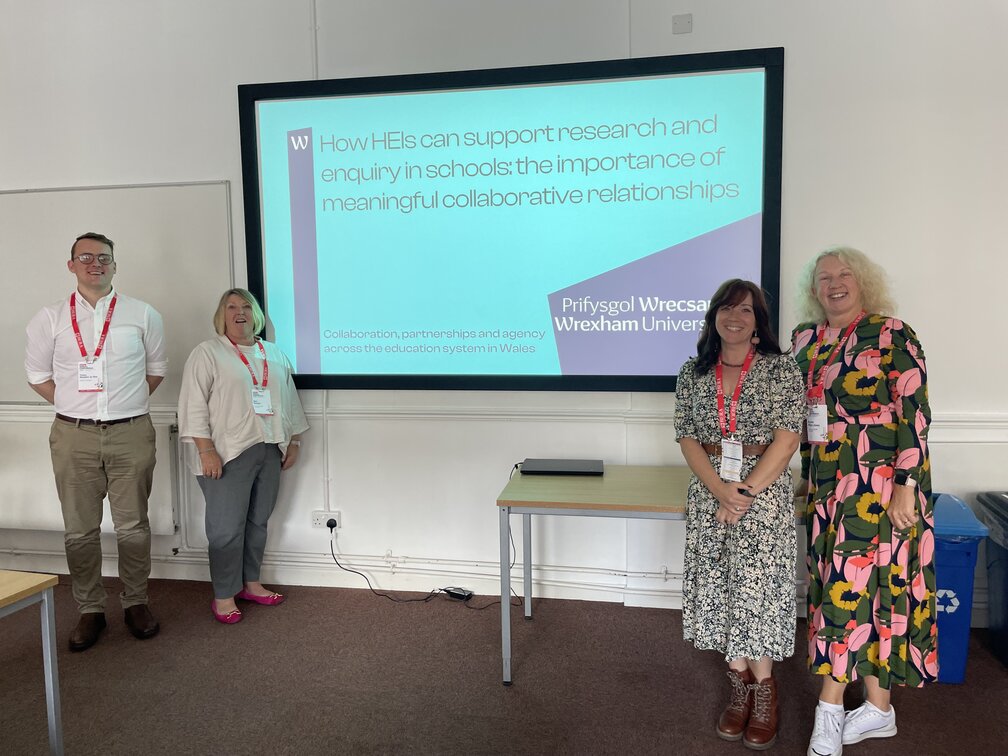Education Team Present at BERA

Education Team Present at BERA (British Education Research Association) Conference
Last month, Dr Sue Horder, Karen Rhys-Jones, Lisa Formby, and Tomos Gwydion ap. Sion from the Education department presented their research at one of the most important conferences within the British Education calendar. The BERA conference was held at Aston University in Birmingham, 12th-14th September, which had over 30 themes and 200 sessions to attend including symposiums, special interest groups, workshops, panel discussions, individual papers, and poster viewings.
The team presented the collaborative work undertaken during the first phase of the ‘Talk Pedagogy’ project within a symposium. Wrexham University, Bangor University, and USW presented, alongside an introductory talk from Mark Ford, Welsh Government Pedagogy Advisor. Due to the success of the Talk Pedagogy project, Wrexham University Education Department are now working in collaboration on the next phase of this important project.
On Wednesday evening, the team attended the conference social event, which was a dinner at the Birmingham Botanical gardens. There, the networking continued against a backdrop of the beautiful gardens, glasshouses full of plants, and even a talking parrot and magician.
The Universities’ joint abstract:
Collaboration, partnerships, and agency across the education system in Wales
The new Curriculum for Wales (2022) offers the opportunity for a profound departure from traditional educational practice. It grants practitioners an unprecedented level of autonomy and gives them increased freedom to meet the needs of their learners. Such an approach places increased responsibility on practitioners to identify and develop the specific learning experiences that they believe would most benefit their learners.
The Talk Pedagogy Project was commissioned by the Welsh Government to support schools to explore the 12 Pedagogical Principles as set out in the Curriculum for Wales. The Project brings together Higher Education Institutions (HEIs) across Wales and Scotland, Schools, and the Welsh Government. HEIs were paired with three schools. Academics from the HEIs worked alongside Head Teachers and practitioners to develop a deeper understanding of authentic learning approaches related to the 12 pedagogical principles. To facilitate this, five themes were identified: authentic classroom-based learning; authentic space/place learning; authentic outdoor learning; authentic problem/enquiry-based learning, and authentic collaborative learning. This symposium aims to discuss four of these approaches and key findings that emerged from this process. These papers represent a collective contribution to enabling practitioners to actualise better the new Curriculum for Wales.

Wrexham University Conference Paper Abstract:
How HEIs can support research and enquiry in schools: the importance of meaningful collaborative relationships
Dr Sue Horder, Lisa Formby, Dr Karen Rhys-Jones & Tomos Gwydion ap Sion - Wrexham University
Dr Richard Watkins - GwE, North Wales regional school improvement service
This paper examines how collaborative relationships can play an instrumental role in embedding and supporting research and enquiry in schools. While much research has been conducted on research summaries for schools (e.g., Gorard, et al., 2020; Rycroft-Smith, 2022; Sjölund, et al., 2022), little research has focused on how HEIs can play a more active role in this process, through an active and constructive dialogue around the evidence.
As part of a collaborative process, the University provided accessible research summaries for three schools on two pedagogical approaches: outdoor learning and collaborative learning. This was followed up by active and constructive dialogue sessions (talking about pedagogy). These summaries affirmed what practitioners already knew and gave them the confidence to explore new directions, leading to a shift in thinking about alternative possibilities to develop meaningful learning experiences. The collaborative process represents a partnership approach where HEIs ‘do what they do best’ by building and supporting a research foundation for practitioners to explore and discuss, and the practitioners, doing what they do best, can embed their understanding within their context.
